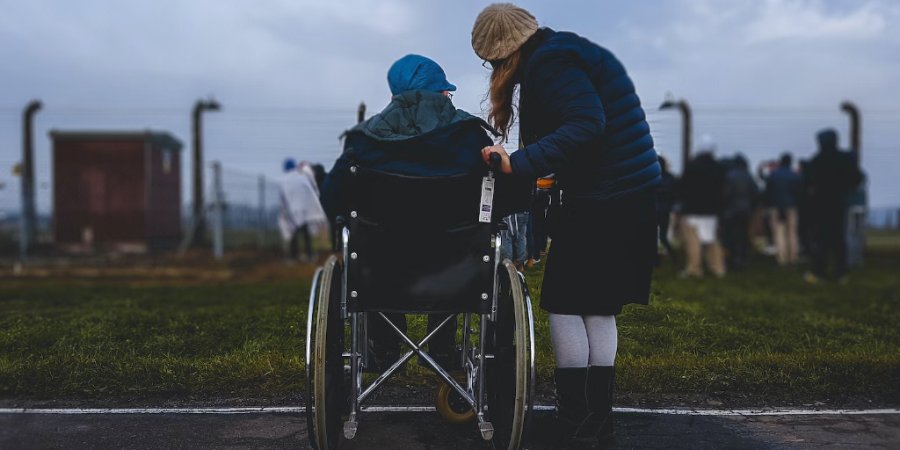Long Term Care Essentials: Clinical Assessment

Welcome to our article on "Long Term Care Essentials: Clinical Assessment." In this informative piece, we will explore the crucial role of clinical assessment in long-term care, providing you with valuable insights and guidance.
Understanding Long Term Care
Long-term care refers to the range of services and support provided to individuals who have chronic illnesses, disabilities, or other conditions that limit their ability to perform daily activities independently. It encompasses a variety of settings, including nursing homes, assisted living facilities, and home care. The goal of long-term care is to ensure individuals receive the necessary assistance and support to maintain their quality of life.
The Importance of Clinical Assessments in Long Term Care
When it comes to long-term care, a comprehensive clinical assessment is essential. It involves a thorough evaluation of an individual's physical, mental, and social needs, enabling healthcare professionals to develop personalized care plans that promote the highest level of well-being and quality of life.
A clinical assessment serves as the foundation for understanding an individual's unique care requirements. It provides valuable information that helps healthcare professionals identify potential risks, strengths, and areas of improvement. By conducting a clinical assessment, caregivers can tailor their approach and interventions to meet the specific needs of each individual, ultimately enhancing their overall care experience.
What is a Clinical Assessment?
A clinical assessment is a systematic evaluation of an individual's health status, functional abilities, and overall well-being. It involves gathering information through various methods, such as interviews, observations, and medical tests. The assessment aims to gather a comprehensive understanding of the individual's physical, emotional, and social aspects to develop an accurate care plan.
Healthcare professionals, including nurses, physicians, and therapists, play a vital role in conducting clinical assessments. They utilize their expertise and knowledge to gather relevant data, interpret the results, and make informed decisions about the individual's care. A collaborative approach involving the individual, their family, and the healthcare team is crucial for a comprehensive and accurate assessment.
The Role of Healthcare Professionals in Conducting Clinical Assessments
Healthcare professionals are at the forefront of conducting clinical assessments in long-term care settings. Their expertise and experience allow them to assess an individual's health status, identify potential risks, and develop appropriate care plans. These professionals collaborate with the individual, their family, and other members of the healthcare team to gather relevant information and ensure a holistic approach to care.
Nurses play a vital role in clinical assessments, as they often have direct and frequent contact with individuals in long-term care settings. They conduct initial assessments, monitor changes in health status, and coordinate care plans. Physicians provide medical expertise, diagnose conditions, and prescribe appropriate treatments. Therapists assess and address specific functional and rehabilitative needs.
Key Components of a Clinical Assessment
A comprehensive clinical assessment involves evaluating various aspects of an individual's health and well-being. The key components typically include:
- Medical History: Gathering information about past and current medical conditions, surgeries, medications, allergies, and immunizations.
- Physical Examination: Conducting a thorough assessment of the individual's vital signs, body systems, mobility, and sensory functions.
- Mental Health Evaluation: Assessing cognitive functions, emotional well-being, and mental health conditions.
- Functional Assessment: Evaluating the individual's ability to perform activities of daily living, such as bathing, dressing, eating, and mobility.
- Social Assessment: Considering the individual's social support system, living arrangements, and community engagement.
- Nutritional Assessment: Assessing dietary habits, nutritional status, and any specific dietary needs or restrictions.
- Environmental Assessment: Evaluating the individual's living environment for safety, accessibility, and potential hazards.
Each component provides valuable information that contributes to a holistic understanding of the individual's care needs.
The Benefits of Comprehensive Clinical Assessments
Comprehensive clinical assessments offer numerous benefits for both individuals in long-term care and their caregivers. Some of the key benefits include:
- Accurate Care Planning: Clinical assessments provide a detailed understanding of an individual's needs, enabling healthcare professionals to develop personalized care plans tailored to their specific requirements.
- Early Intervention: Identifying potential risks and areas of improvement allows for early intervention, preventing complications and promoting better health outcomes.
- Enhanced Communication: Clinical assessments serve as a platform for effective communication among healthcare professionals, individuals, and their families, ensuring everyone is on the same page regarding care goals and interventions.
- Continuity of Care: Clinical assessments facilitate seamless transitions between different care settings by providing a comprehensive overview of the individual's health status and care requirements.
- Quality Improvement: Clinical assessments contribute to ongoing quality improvement efforts in long-term care settings by identifying areas for improvement and evaluating the effectiveness of interventions.
By conducting comprehensive clinical assessments, healthcare professionals can optimize the care experience for individuals in long-term care settings.
How Clinical Assessments Contribute to Personalized Care Plans
Personalized senior care plans are at the core of effective long-term care. They ensure that individuals receive the specific support and interventions they need to maintain their well-being. Clinical assessments play a crucial role in developing personalized care plans by providing healthcare professionals with the necessary information to tailor their approach.
Based on the findings of a clinical assessment, healthcare professionals can identify the individual's strengths, weaknesses, and preferences. They can then develop care plans that address the individual's unique needs, goals, and aspirations. This person-centered approach promotes individual autonomy, enhances the care experience, and improves overall quality of life for individuals in long-term care.
Tools and Techniques Used in Clinical Assessments

Healthcare professionals employ various tools and techniques to conduct clinical assessments effectively. These may include:
- Questionnaires and Surveys: Standardized questionnaires and surveys help gather specific information about an individual's health status, functional abilities, and quality of life.
- Observation and Interview: Direct observation and interviews with the individual, their family, and caregivers provide valuable insights into their daily routines, abilities, and challenges.
- Medical Tests and Assessments: Diagnostic tests, such as blood tests, imaging studies, and cognitive assessments, help identify and evaluate specific health conditions and functional abilities.
- Assistive Technology: Technology-based tools, such as electronic health records, wearable devices, and remote monitoring systems, can aid in collecting and analyzing data for clinical assessments.
By utilizing these tools and techniques, healthcare professionals can gather accurate and comprehensive information to inform their care decisions.
Common Challenges in Conducting Clinical Assessments
While clinical assessments are essential, they can present certain challenges for healthcare professionals. Some common challenges include:
- Limited Time: Healthcare professionals often have limited time to conduct thorough assessments due to heavy workloads and time constraints.
- Subjectivity: Clinical assessments may involve subjective judgments, relying on the interpretation of healthcare professionals, which can introduce bias.
- Complexity: Assessing an individual's health status and well-being requires considering multiple factors and potential interactions, making the assessment process complex.
- Lack of Standardization: There may be variations in assessment practices and tools across different healthcare settings, leading to inconsistencies in care planning.
Despite these challenges, healthcare professionals strive to overcome them and conduct effective clinical assessments to ensure the best possible care for individuals in long-term care.
Best Practices for Conducting Effective Clinical Assessments
To enhance the effectiveness of clinical assessments, healthcare professionals can follow these best practices:
- Establish Rapport: Building trust and rapport with the individual and their family is crucial in obtaining accurate and honest information.
- Allow Sufficient Time: Allocating adequate time for assessments ensures thorough evaluations and reduces the risk of overlooking important details.
- Collaborate with the Individual: Involving the individual in the assessment process empowers them and helps validate their experience, preferences, and goals.
- Utilize Interdisciplinary Approaches: Collaboration among healthcare professionals from different disciplines promotes a holistic understanding of the individual's care needs.
- Continual Evaluation and Update: Regularly reviewing and updating clinical assessments ensures that care plans remain relevant and effective as the individual's needs evolve.
By adhering to these best practices, healthcare professionals can optimize the clinical assessment process and improve the overall care experience.
The Role of Technology in Enhancing Clinical Assessments
According to experts in elder care, technology plays an increasingly significant role in enhancing clinical assessments in long-term care. Electronic health records (EHRs) allow for centralized and accessible documentation of assessment findings, facilitating communication and collaboration among healthcare professionals. Wearable devices and remote monitoring systems provide real-time data that can inform clinical assessments and enable proactive interventions. Artificial intelligence (AI) and machine learning algorithms can help analyze large datasets, identify patterns, and predict health outcomes.
As technology continues to advance, it holds immense potential for revolutionizing the clinical assessment process, improving accuracy, efficiency, and outcomes for individuals in long-term care.
The Future of Clinical Assessments in Long Term Care
Looking ahead, the future of clinical assessments in long-term care is promising. Advancements in technology, increased awareness of person-centered care, and a growing emphasis on interdisciplinary collaboration are shaping the future of clinical assessments.
Innovations such as telehealth, virtual reality, and remote monitoring systems are likely to become more prevalent, enabling healthcare professionals to conduct assessments remotely, monitor individuals' health in real-time, and provide interventions promptly. Standardization of assessment tools and practices across healthcare settings will enhance consistency and improve care coordination.
Moreover, a shift towards more person-centered and holistic care approaches will further emphasize the importance of comprehensive clinical assessments to tailor care plans to individuals' unique needs and preferences.
Conclusion
Comprehensive clinical assessments play a critical role in long-term care, ensuring individuals receive the personalized support and interventions they need to maintain their well-being. By conducting thorough assessments, healthcare professionals can gather valuable information, develop tailored care plans, and enhance the overall care experience for individuals in long-term care settings.
As we continue to evolve in our understanding of long-term care, it is essential to prioritize the importance of clinical assessments and strive for continuous improvement in assessment practices. By embracing technology, interdisciplinary collaboration, and person-centered approaches, we can optimize the clinical assessment process and ultimately provide the best possible care for our loved ones in long-term care settings.
Previous Posts:
